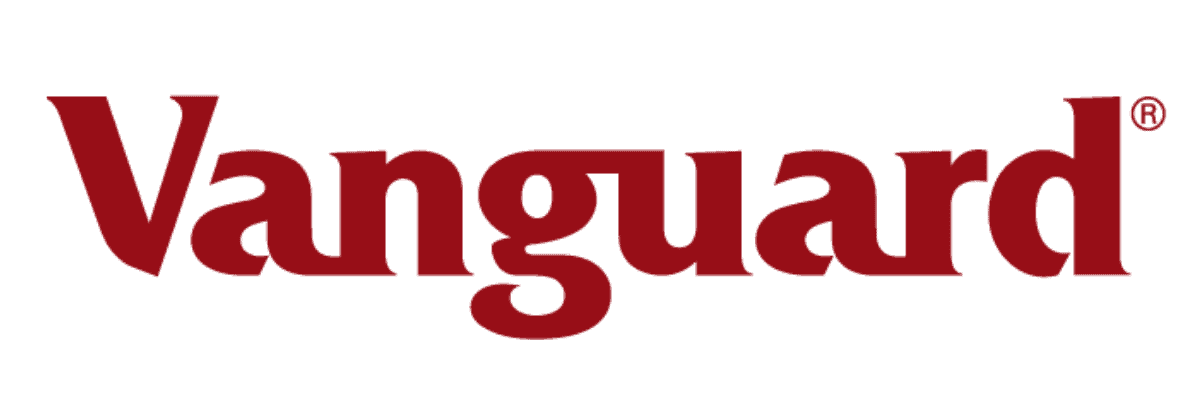Vanguard Canada Index ETFs vs Mutual Funds
When Vanguard Canada first approached me about doing an interview in regards to their two new mutual fund products, I have to admit that my response was:
“Wait, Vanguard still has mutual funds? They’re introducing new ones? Are we sure that’s a good idea?”
What followed was an interesting back and forth email interview with Tim Huver, Head of Intermediary Sales at Vanguard Canada.
The two new mutual funds that you’ll read about us discussing are the:
Vanguard Global Credit Bond Fund – Vanguard’s first active fixed income fund seeks to provide a moderate and sustainable level of current income by investing primarily in non-government fixed income securities of issuers located anywhere in the world. The fund will have a management fee of 0.40%.
Vanguard Global Equity Fund – This fund will seek to provide long-term capital appreciation by investing primarily in equity securities of companies located anywhere around the world. The maximum management fee for the fund will be 0.55%.
The first thing that I noticed when I looked at these two funds was that while the MER wasn’t quite as low as their all-in-one ETFs that we love, it was much much lower than the average Canadian mutual fund’s MER. So I figured we should at least hear them out on these new products!
Without further ado, here’s Tim Huver from Vanguard Canada!

Are You Saving Enough for Retirement?
Answer your retirement savings questions with 4 Steps to a Worry-Free Retirement. The first online course for Canadian retirement.
Try Worry Free Retire with 100% Money Back Guarantee
Interview With Tim Huver From Vanguard Canada
Kyle: Hi Tim, so, I’ll get right to it here, I thought Vanguard was all about index funds in an ETF form – they have mutual funds too?
Tim: Yes, we currently have six mutual funds available in Canada, including two new funds with global equity and global fixed income mandates respectively, all of which are actively managed.
One thing that most people don’t know about us is that we have a 40-year track record in offering actively managed mutual funds, dating back to our founding in the U.S., so this is very familiar territory for us.
In fact, Vanguard is one of the largest actively managed mutual fund managers in the world. We are excited to offer up more choices for investors and financial advisors who are looking for our unique blend of talented investment managers, and who take a patient and long-term view of the market and all at a cost that is well below the industry average for mutual funds in Canada.
Kyle: I have to be honest in saying that my simplified thoughts have always been: mutual funds = “bad” and index ETFs = “good”. I assume that it’s not quite so black and white from your point of view?
Tim: Not necessarily, I think this perception is more related to the fee structure in Canada where generally, mutual funds and actively managed funds are more expensive.
It’s not about ETFs vs. Mutual Funds, not Index/Passive Funds vs. Active Funds, it’s all about “High Cost” vs. “Low Cost”. Lower costs give investors a better chance for investment success.
For Vanguard, our structure in being mutually owned by investors in the U.S. provides a benefit to all. It allows us to leverage our global size and scale to offer lower cost funds and ensure we have a single-minded focus on investors.
The result for our mutual funds here in Canada is that you get access to some of our flagship investment funds and managers, at a fraction of what you typically would pay for an actively managed fund.
Mutual funds can play an important role in a portfolio, whether it’s with investors who are unfamiliar with ETFs and prefer mutual funds, or within a “core-satellite” investing approach with the core of the portfolio in index ETFs and the satellite providing a lower proportion of actively managed investments which can help diversify a portfolio.
Kyle: Before we get into the passive vs active debate, just how do the new Vanguard Canada mutual funds stack up in terms of fees against all-in-one ETFs and Canada’s current mutual fund options?
Tim: Given our history, structure and track record, we are able to provide these high-quality investment strategies at a low-cost to investors, less than half the industry average. It is a real differentiating factor for us in the market, similar to what we have done with our lineup of passive ETFs, where you get the benefit of low-cost without sacrificing on the quality of the investment mandate.
Our “all-in-one” ETFs or asset allocation ETFs are lower cost at a management fee of 0.22% but they are very different products with mutual funds being actively managed and ETFs being passive.
We are seeing Canadians and the industry gravitate towards global and lower-cost products whether that’s an ETF or mutual fund. That’s a great outcome for investors as it means they get to keep more of their returns, which compound over time.
In general, there is no one size fits all approach to investing so you can hold both an active mutual fund and passive ETF in your portfolio and alter that depending on your conviction in either approach.
Kyle: For readers who aren’t 100% sure what we mean when we say that “passive vs active” investments, what exactly is the difference there as defined by Vanguard? Just to follow up on that thought, what is Vanguard’s philosophy when it comes to selecting investments for an actively managed fund.
Tim: Our philosophy on active management can be summed up in three core principles – talent, cost, and patience.
With talent, we seek out skilled investment managers, both within Vanguard and outside advisors, and implement a philosophy that leads to a more reliable ability to outperform the market, or to put it in more technically terms – “achieve alpha” – for investors.
Cost is another important component in that it is one of the more reliable indicators of outperformance. We are able to achieve this cost advantage without sacrificing quality, based on our global investment footprint, size and scale.
And the third key pillar is patience. For us, this refers to long-standing relationships with our external fund managers which go back many decades. This helps reduce volatility in the funds and can help achieve a better outcome for investors.
Focusing on these three principles has resulted in a high percentage of our active funds around the globe outperforming their peer groups over 3-, 5- and 10-year periods.
Source: Only funds with a minimum one-, three- five- or ten-year history, respectively were included in this analysis. Source: Lipper, a Thomson Reuters Company for the period ending 6/30/21.
Kyle: Ultimately, who would you recommend these actively managed funds for vs the more standard index Vanguard products that MDJ readers are more familiar with?
Tim: I’ll go back to my earlier point in that there really is no one size fits all approach to investing. We believe in both our index ETFs and/or active mutual funds as strong options for investors given that they share the same philosophy in terms of being well-managed, globally diversified and low-cost relative to the industry average.
We feel there is room for both strategies, both active and passive, as they cater to different needs and a variety of investors and advisors.
Based on what we have seen on the ETF side, we are hoping that our mutual funds lead the way in moving the industry toward lower overall costs on the active side. These are products you can hold for the long-term, in contrast to some of the riskier or more speculative investments that are generating headlines recently.
Final Thoughts
While I think I’m pretty strongly in the index fund camp for the time being, (and have Vanguard to thank for the super-low fees that I enjoy on my ETFs – as they are largely responsible for dragging the whole industry into our current low-fee environment) I am quite interested to see just how much outperformance Vanguard’s funds can achieve going forward.
I honestly never thought I’d see the day when Canada would have a Global Equity Fund available for a total MER of under .55%. That’s certainly an attractive price point, and I hope that Vanguard succeeds in re-writing the rules of the road for active management in Canada as they have for passive management.
Big thanks to Tim and the crew over at Vanguard Canada for answering my questions this week!
I've Completed My Million Dollar Journey. Let Me Guide You Through Yours!
Sign up below to get a copy of our free eBook: Can I Retire Yet?



